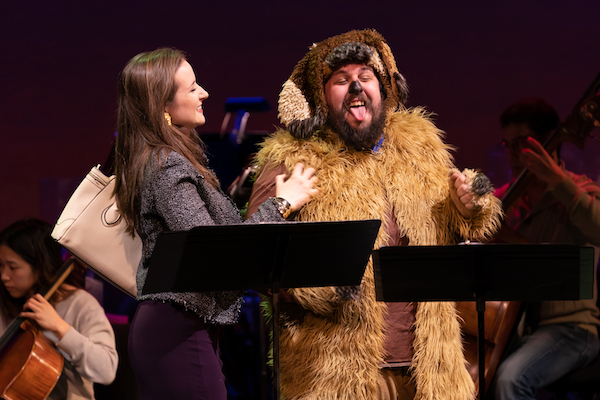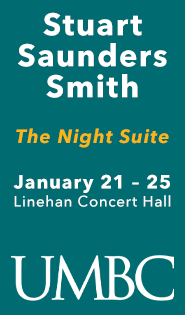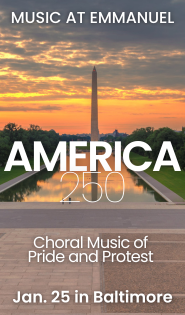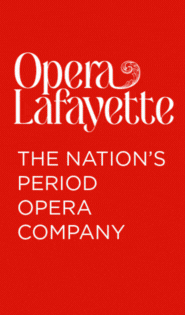Delightful “Pepito” lets the dogs out at American Opera Initiative premieres

Alexandra Nowakowski and Samuel Weiser in Nicolas Lell Benavides’ “Pepito” at Washington National Opera. Photo: Scott Suchman
Writing a twenty-minute opera is harder than it seems.
Washington National Opera gives three rising American composers a crack at composing one each year as part of its American Opera Initiative. Three new short operas received their world premieres at the program’s seventh annual festival Saturday night in the Kennedy Center Terrace Theater. One of them succeeded as a compelling work in the brief space allotted.
Matt Boehler’s offering, 75 Miles, bit off more than it could chew dramatically. The libretto by Laura Barati depicts a teenage daughter telling her mother that she is pregnant. The family’s finances are already stretched: how will they tell the girl’s father they need to take his car to drive the eponymous distance to the nearest abortion clinic? The complications facing the characters, for their jobs, faith, mortgage, and so on, outstrip the opera’s mandated length.
The composer favored an unnecessarily spare use of the already small chamber orchestra (four strings, four woodwinds, three brass, percussion, and piano). He created some lush sounds for the string section, but the melodic writing did not take advantage of the voices, particularly the two parents—the potent mezzo-soprano Alexandra Christoforakis (a member of the WNO Chorus since 2012) and stentorian baritone Joshua Conyers (like most of the singers a member of the Domingo Cafritz Young Artists program).
The subject of Relapse, composed by Molly Joyce to a libretto by James Kennedy, also seemed too complex for the short format. A woman named Marina wakes up in a hospital bed. At first she has no memory that her pill addiction caused her to overdose, thinking she must have undergone a surgery. Her sister, Jessie, angrily explains the truth to her, over the objections of the nurse on duty. Marina’s codependent boyfriend eventually shows up, offering her more pills.
Joyce deployed a pleasing variety of inventive sounds in the orchestra—for example, opening the score with glints of bowed vibraphone, piano strings hammered by mallets, and violin harmonics. She tended to overuse decorative vocal melismas at the end of her melodies, but her vocal characterization was strong, giving each singer ample ways to distinguish his or her role.
The major discovery of the evening was the WNO debut of soprano Amanda Palmeiro, a member of the WNO chorus since 2016, who possesses a beautiful top range and a sweet pianissimo tone, among many assets. Baritone Samson McCrady and tenor Alexander McKissick also shone brightly as the nurse and the boyfriend, respectively.
A lighter comic tone distinguished the third world premiere, Pepito, with music by Nicolas Lell Benavides and libretto by Marella Martin Koch. The title character is a dog abandoned in a shelter, whose first lines are barks and whines, eventually becoming words. A busy couple, Camila and David, show up at the end of the day, looking for a puppy.
The shelter volunteer, Angie, regrets that “the puppies are overstimulated,” but the couple could see if they have a connection with Pepito. Ingeniously for the commissioning context, the characters have to work against the clock in real time to make the adoption happen, because they have arrived with only twenty minutes until the shelter closes. Benavides achieved the greatest variety of textures and sounds in this accomplished score, with hints of Latin percussion and an affecting love duet between a girl and her dog-to-be.
Bass Samuel Weiser, who made quite a mark in a comprimario role in last fall’s La Traviata, embraced his canine side with delight. His repertory of lovable dog gestures was broad and entertaining, from the moment he took the stage carrying his music folder in his mouth. Soprano Alexandra Nowakowski, who was a ravishing Unicorn in last month’s holiday opera, had substantial parts in all three operas. She stood out most admirably here as the young woman who finds her soulmate when she discovers that Pepito understands Spanish.
Conductor Steven Osgood, leading the orchestra at one side of the stage, helped give each work the best possible presentation. Director Andrea Dorf McGray’s direction, simple enough for the singers to perform while using music, was effective with semi-staging. Despite the almost inevitably mixed results, WNO deserves plaudits for providing a space for new American operas to try and fail, or, in the case of Pepito, to succeed.





